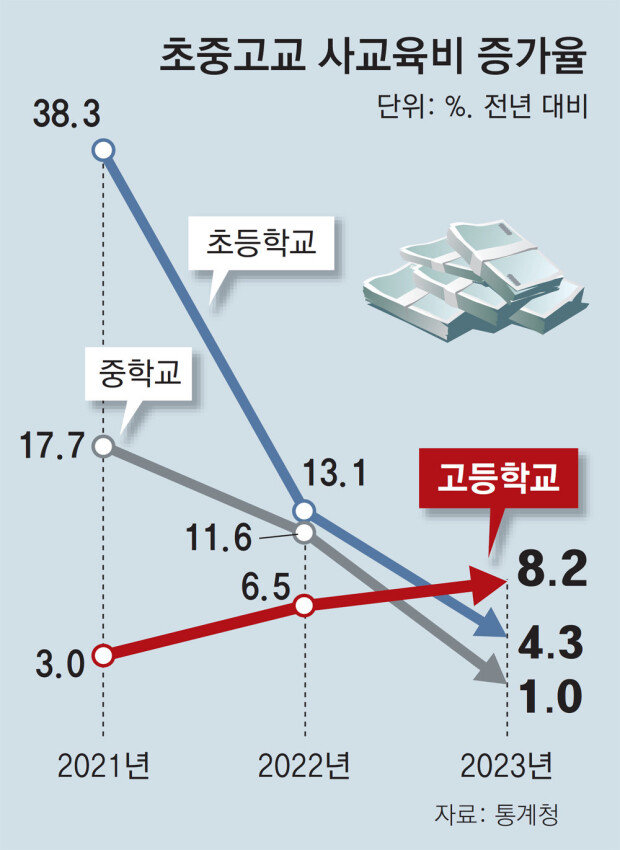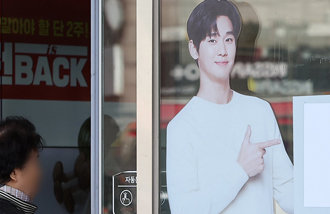Private education spending hit all-time high last year
Private education spending hit all-time high last year
Posted March. 15, 2024 08:14,
Updated March. 15, 2024 08:14

Last year, spending on private education for students in South Korea reached a record high for the third consecutive year, totaling 27.1 trillion won. Changes in the College Scholastic Ability Test (CSAT) trend, such as excluding "killer" questions and expanding medical school quotas, are considered contributing factors.
On Thursday, the Ministry of Education and Statistics Korea announced the results of the "2023 Survey on Private Education Expenses for Elementary, Middle, and High School Students," which surveyed over 74,000 students nationwide. Private education expenses last year approximately rose 4.5%, 26 trillion won, in 2022. The proportion of students participating in private education also reached the highest level ever at 78.5%, up 0.2 percentage points from the previous year. Private education spending decreased by 7.8% compared to the previous year in 2020 during the COVID-19 pandemic but increased by 21% in 2021 and by 10.8% in 2022.
A notable characteristic of private education spending last year was the significantly higher increase in spending for high school students, at 8.2%, compared to elementary school students (4.3%) and middle school students (1%). In particular, the increase in private education spending for third-year high school students was higher than that for first and second-year students. "It appears that anxious parents relied more on private education last year due to the rapid changes in the CSAT format, such as the exclusion of 'killer' questions,” a Korean language teacher at a high school in Seoul said. “It was something that was expected."
"There was indeed an increase in private education due to factors of anxiety, but the exclusion of 'killer' questions and fair CSAT is the direction we should go,” Baek Dong-in, a policy planner at the Ministry of Education, also explained during a briefing on that day. “Once these changes are established, it is expected to reduce the reliance on private education."
최훈진 기자 choigiza@donga.com
Headline News
- Opposition parties pass amendment to Commercial Act
- Impeachment motions against top officials dismissed
- IU's residence ranked as the nation's most expensive apartment
- K-medicine saves 300 lives in Mongolia through liver transplant skill transfer
- Prisoners in N. Korean camps suffer from torture at minus 30 degrees







